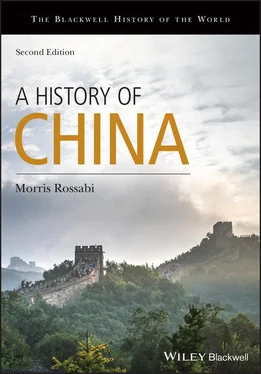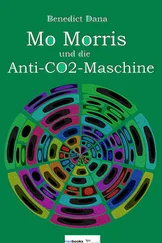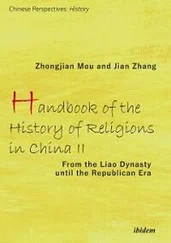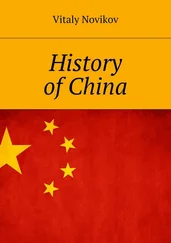Zhuang Zi (or Zhuang Zhou), a Daoist who lived in the fourth and third centuries BCE, amplified the ideas found in the Daodejing . Instead of cryptic verses, Zhuang Zi used anecdotes and paradoxes to illustrate the principles of Daoism. His amusing yet pointed stories provided revealing introductions to the basic Daoist precepts and also poked fun at and satirized contemporary and earlier thinkers.
Like the Daodejing , Zhuang Zi sought unison with the Way ( dao ), identified with nature or Heaven. Such an effort required liberation from social standards. Conventional morality and behavior would lead the individual astray, and only actions divorced from a desire for material gain or any other kinds of advantage deserved praise. Spontaneous and intuitive actions reflected the Way. Zhuang Zi repeatedly praised artisans who produced beautiful and useful artifacts instinctively without the burden of ponderous intellectualizing about their craft. He valued imagination and freedom from convention more than incessant intellectual discourse. His views on morality and on overreliance on intellect and reason thus clashed with the philosophy of Confucius, who appears in several of Zhuang Zi’s anecdotes. He deflated Confucius with ridicule rather than with scathing denunciations of the earlier philosopher’s ideas. He valued those who forgot about morality, about the untenable distinctions between good and evil, and about constant use of reason.
As a mystic, Zhuang Zi tended to distrust knowledge derived from the senses or so-called experience. He wrote that the true sage looked inward rather than to external reality in order to become enlightened. Dependence on the senses would mislead and would be deadening. One of Zhuang Zi’s anecdotes, in the translation by Burton Watson, aptly demonstrates his views of the senses. Two emperors frequently met “in the territory of [emperor] Hundun, and Hundun treated them very generously.” They “discussed how they could repay his kindness. ‘All men,’ they said, ‘have seven openings so they can see, hear, eat, and breathe. But Hundun alone doesn’t have any. Let’s try boring him some.’ Every day they bored another hole (for his eyes, ears, mouth, and nose), and on the seventh day Hundun died.” 1
Zhuang Zi’s connections with Lao Zi, the reputed founder of Daoism, are uncertain. Since Lao Zi is not an attested figure and the exact dating of the Daodejing is contested, the possible links between the philosophers will probably remain unknown. Zhuang Zi mentions Lao Zi in several of his anecdotes but does not cite the Daodejing . Yet this does not prove that Lao Zi was a real figure because Zhuang Zi mentions numerous legendary and mythical personages. In any event, both the Daodejing and Zhuang Zi have attracted the attention of numerous translators in the West. Their mysticism, their occasional playfulness, and their elusiveness have appealed to Western interpreters of east Asian thought, making them among the most translated texts in world literature.
In their own times, neither Lao Zi nor Zhuang Zi appealed to the political elite. Their ideas did not appear to provide useful guides to decision making or to bolstering the power of individual rulers. Unlike the other pragmatic moral and political philosophies of the era, Daoism offered scant practical aid to rulers seeking to expand their territories and to promote unity within their domains. Its murkiness and its espousal of nonaction were deemed too unrealistic by political leaders. By emphasizing social order and by prescribing proper conduct between the governors and the governed, Confucianism, Legalism, and the other philosophies of the time seemed more attuned to the rulers’ needs; Daoism did not appear as useful politically. Yet the eventual success of Confucianism did not lead to the extirpation of Daoism. Indeed, Confucianism and Daoism were not mutually exclusive. Because each dealt with different needs and facets of mankind – Confucianism with the political and the social and Daoism with the individual, the aesthetic, and emotions – they could and did coexist.
Popular religions offered another means of solace in unstable times, although written sources for such expressions are limited. However, glimpses may be garnered through inference. Some texts cite belief in spirits and in deities associated with nature, but details about specific rituals are scarce. A work of poetry, known as the Chu ci ( Songs of the South or Songs of Chu ), mentions shamanism, which was an easily accessible religion because it did not depend on written sources. With the help of musical instruments and a whirling dance, a shaman would fall into a trance and allegedly reach the sky and speak in the names of the spirits. Judging from modern shamanism in Japan and Korea, shamans also provided rudimentary medical care. To be sure, shamanism developed different forms and practices in northeast Asia, including Manchuria and Mongolia. In any event, the Chu ci includes a poem called “Li Sao” (Departing in Sorrow), which had profound reverberations on Chinese history and yielded set themes about a badly treated official who commits suicide in response and, in that manner, clears his name. Qu Yuan (343–278 BCE), the writer of the poem, himself had been dismissed from government service for warning about taking precautions against the state of Qin. His warnings fell on deaf ears and the Qin conquered his region. In despair, Qu committed suicide. The annual Dragon Boat Festival, on the fifth day of the fifth lunar month, commemorates this heroic figure.
Popular religions may have had as great an influence on the ordinary person as Daoism and other clearly defined philosophies. They had few specific texts and no clergy except for practitioners. The lack of a canon made these views accessible to the largest segment of the population, most of whom could not read or write. Worshippers did not limit themselves to set beliefs and instead borrowed, combined, and adapted them from local traditions and other religions and cults. They believed in such supernatural beings as gods, ancestors, and ghosts and prayed to them to provide rain, to avert natural catastrophes, and to prevent illnesses. They incorporated veneration of the ancestors and a belief in an afterlife. Gods and ancestors became central, but worshippers showed the same reverence to ghosts because they feared them. A cult of the dead developed, with ancestral tablets playing important roles in prayer.
The gods might respond to prayers if provided with temples and shrines, which were situated according to the principles of geomancy. Statues honoring them, festivals, and offerings of food, drink, and incense would also prompt responses. Practitioners would perform divinations and would interpret the gods’ and ancestors’ responses. The Jade Emperor, a towering figure, was in many cases the leading deity, but he remained aloof and somewhat inapproachable. Indeed, before the twelfth century CE, many gods were remote and were associated with mountains, the earth, natural phenomena, and heroes of a distant age. Local deities, such as a city god who was responsible for public safety and justice and a kitchen god whose image adorned many households, were more approachable, but even the kitchen god offered an annual report on household members to the Jade Emperor, an indication of the greater power of the more remote deities. Naturally, there were many regional and local variations in such worship and performance.
Confucianism has cast such a large shadow over Chinese history that Chinese society cannot be understood without knowledge of Confucius’s life and ideas. His theories of human nature, proper conduct, and interpersonal relations dominated much of Chinese history from the Han dynasty (206 BCE–220 CE) on. Since then, Confucius has been so inextricably linked with Chinese civilization that the term “Confucian China” seems commonplace. Students, recognizing the significance of Confucianism, often ask whether it is a philosophy or a religion. They implicitly assume that Confucianism was so vital to the legitimacy and functioning of Chinese society that it needed to be more than a philosophy. However, Confucianism’s emphasis on this life differentiates it from most religions.
Читать дальше












